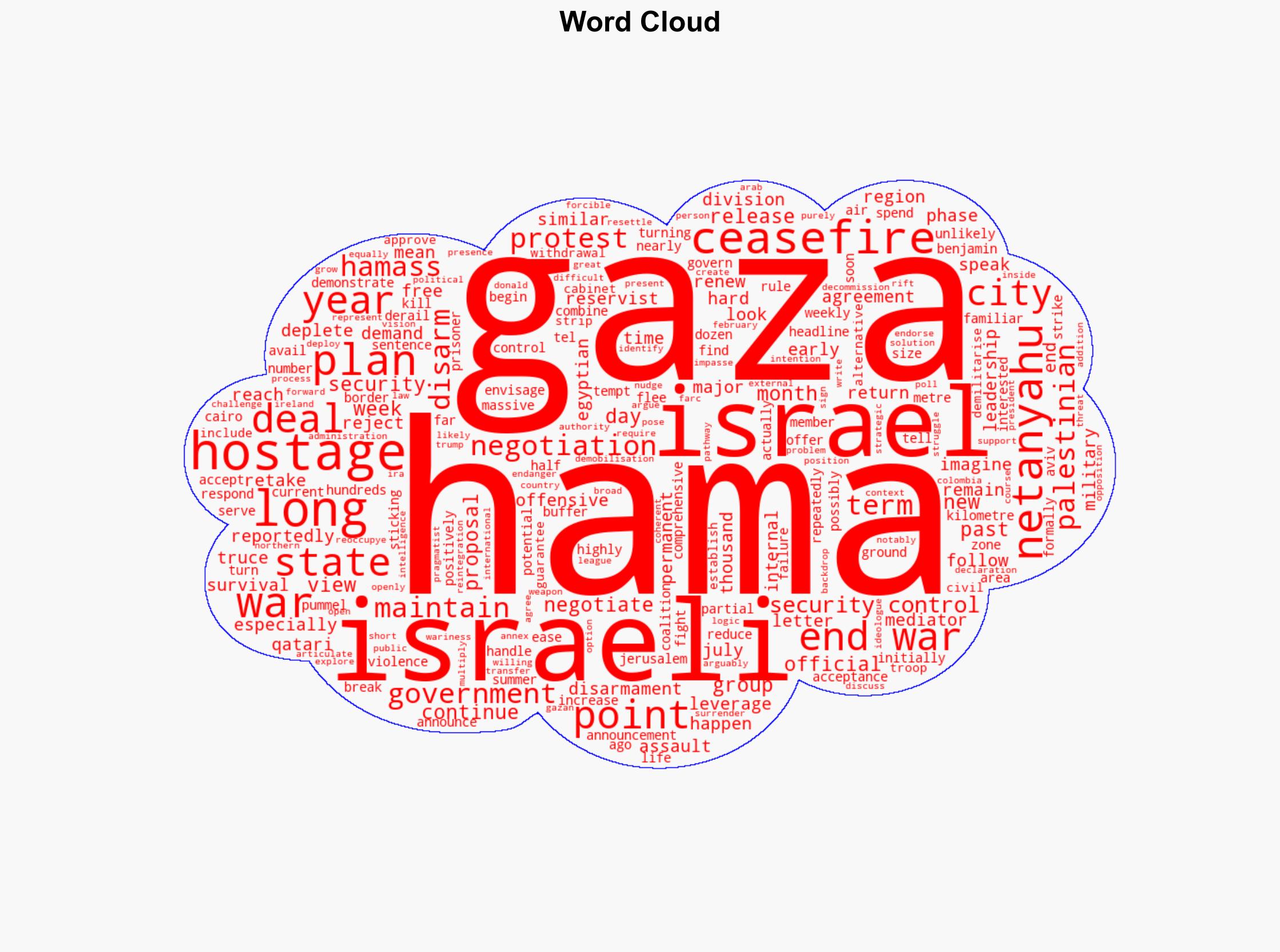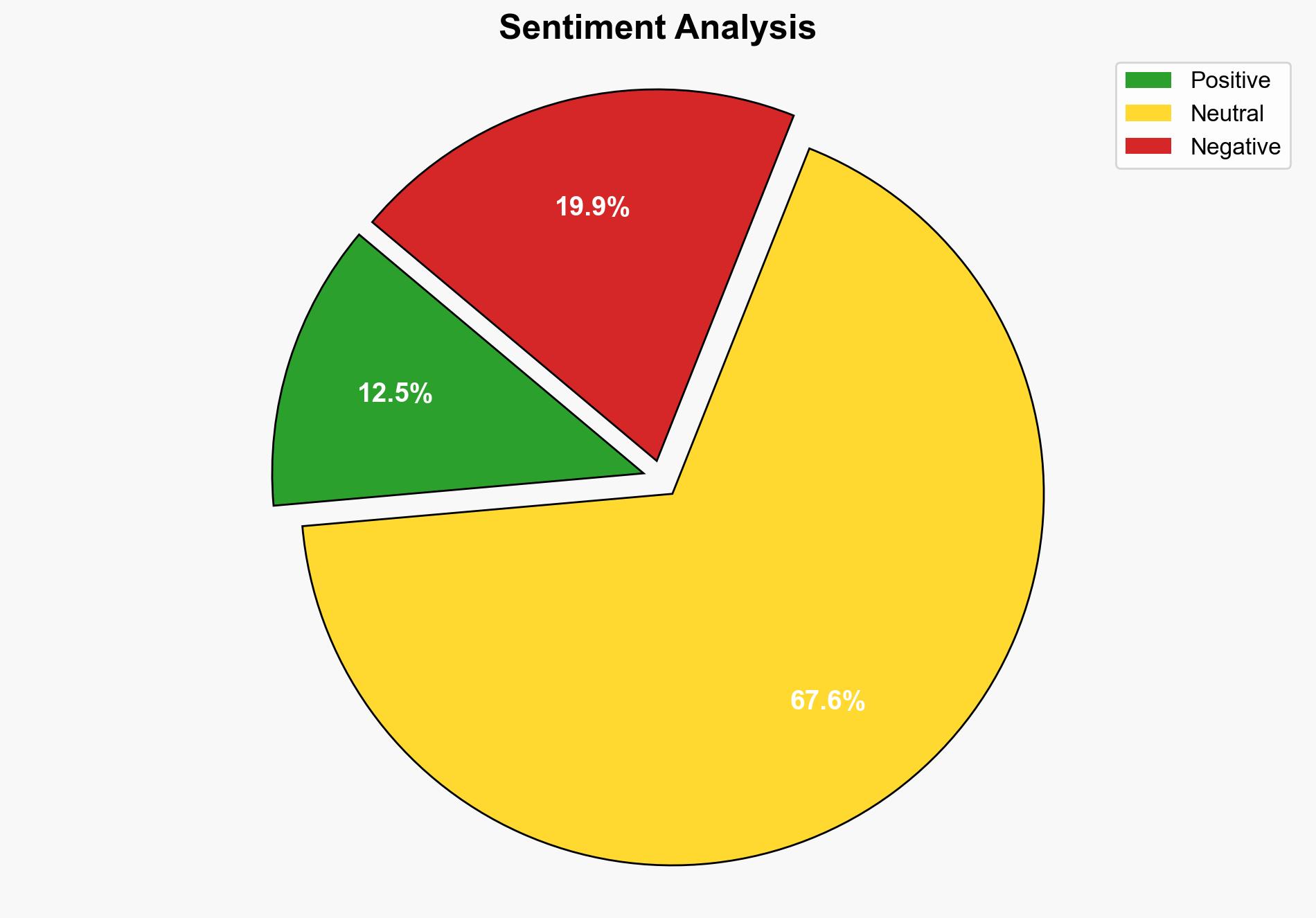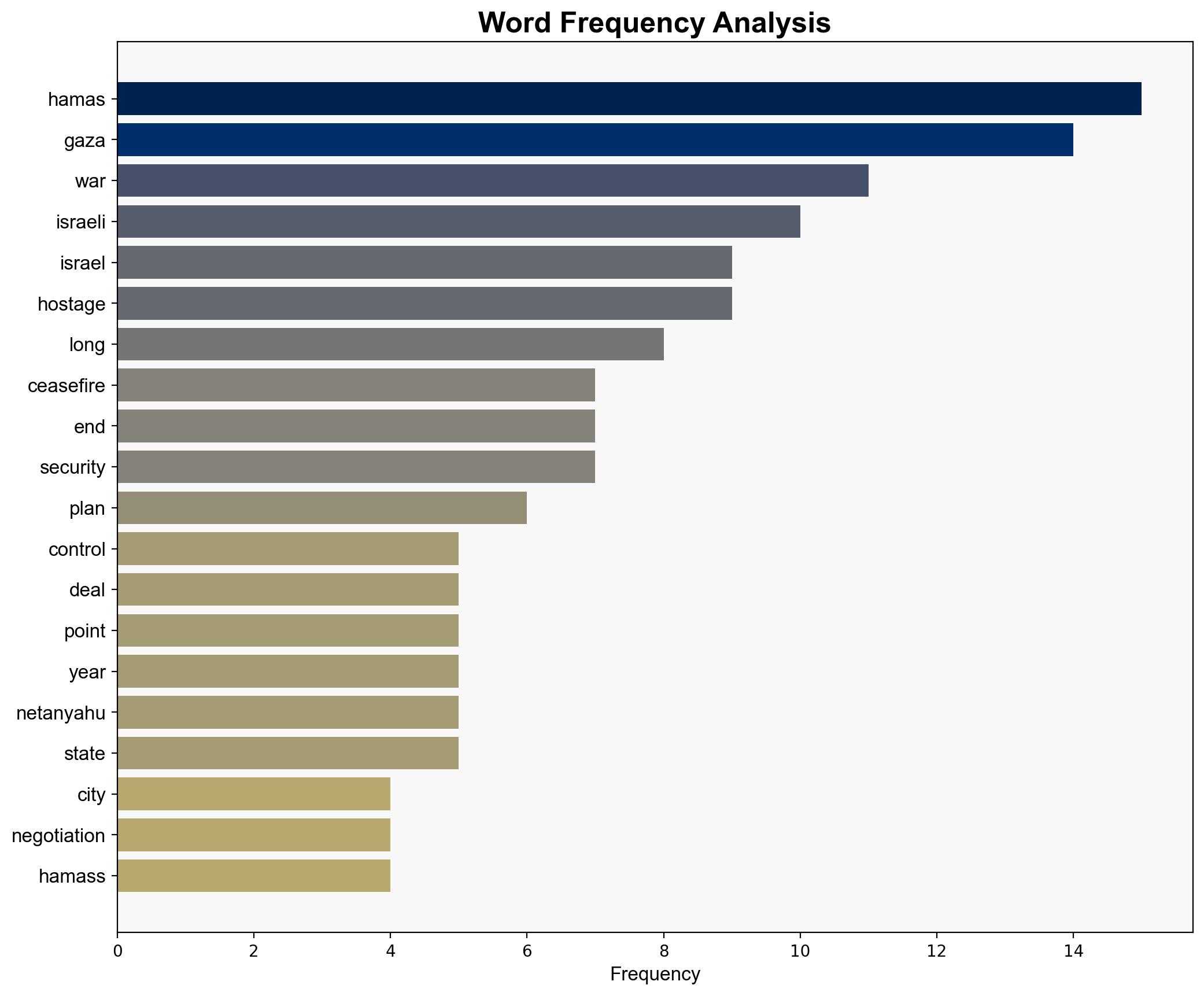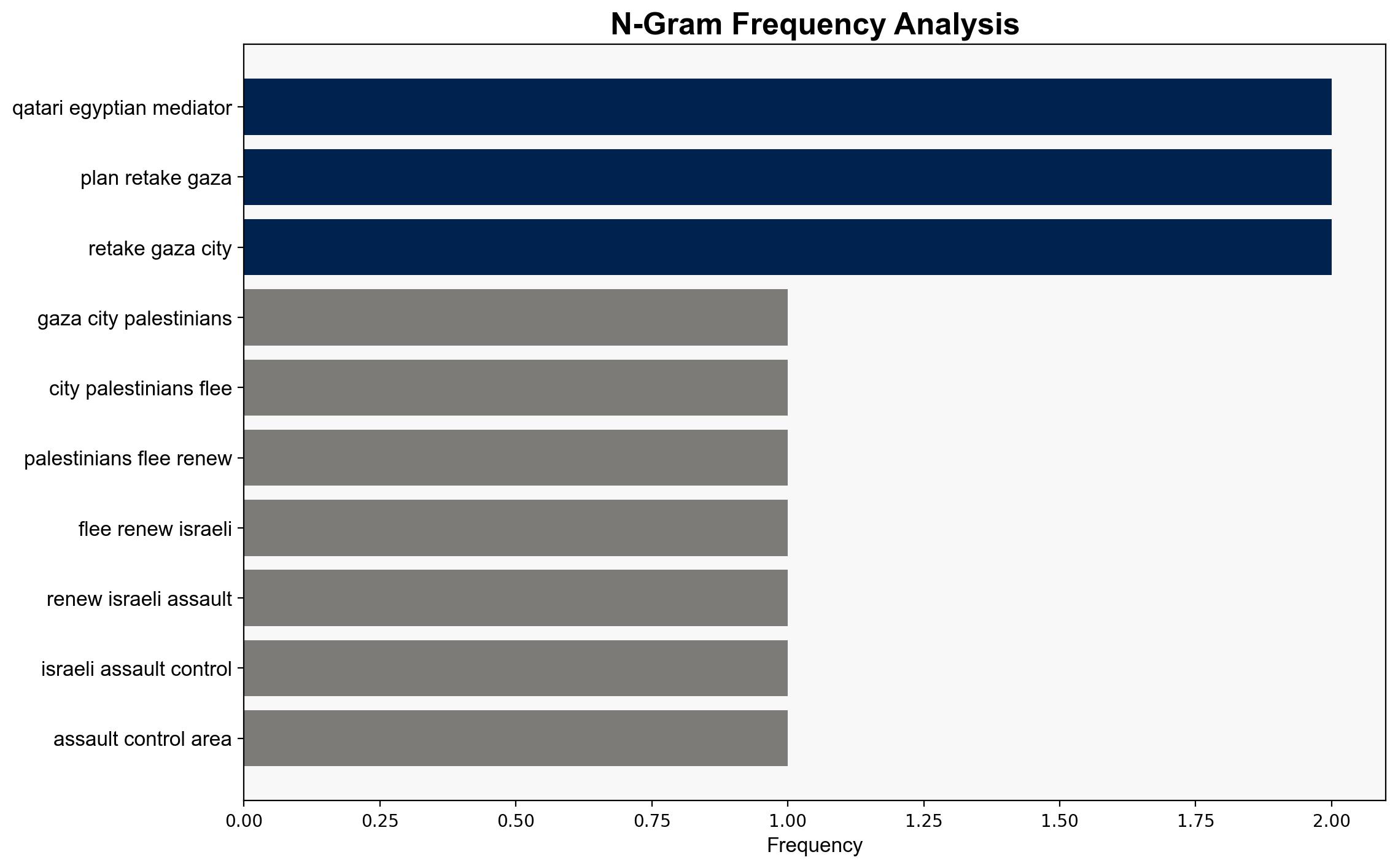No end to the violence as Israel launches its assault on Gaza City – The Conversation Africa
Published on: 2025-08-21
Intelligence Report: No end to the violence as Israel launches its assault on Gaza City – The Conversation Africa
1. BLUF (Bottom Line Up Front)
The ongoing conflict between Israel and Hamas is unlikely to reach a resolution in the near term. The most supported hypothesis suggests that Israel will continue its military operations in Gaza, as Hamas is unlikely to agree to disarmament or a ceasefire under current conditions. Confidence level: Moderate. Recommended action: Encourage diplomatic engagement through international mediators to explore phased de-escalation strategies.
2. Competing Hypotheses
1. **Hypothesis A**: Israel will maintain its military offensive in Gaza, as Hamas is unwilling to disarm or agree to a ceasefire without significant concessions.
2. **Hypothesis B**: A ceasefire will be reached through international mediation, leading to a temporary halt in hostilities and potential negotiations for a longer-term solution.
Structured Analytic Techniques (SATs) such as Analysis of Competing Hypotheses (ACH) suggest that Hypothesis A is more supported due to the current Israeli government’s rejection of negotiation terms and Hamas’s reluctance to disarm without a broader political agreement.
3. Key Assumptions and Red Flags
– **Assumptions**: It is assumed that both parties are acting in their perceived best interest and that international mediation efforts will continue.
– **Red Flags**: The potential for misinformation or propaganda from both sides could skew perceptions. The lack of a clear, mutual incentive for peace is a significant blind spot.
– **Inconsistent Data**: Conflicting reports on Hamas’s willingness to negotiate and Israel’s long-term intentions in Gaza.
4. Implications and Strategic Risks
– **Escalation Risks**: Continued military operations could lead to broader regional instability, drawing in neighboring countries or non-state actors.
– **Economic Impact**: Prolonged conflict may disrupt regional trade and impact global markets, particularly in energy sectors.
– **Geopolitical Dynamics**: The conflict could strain Israel’s relations with key allies and complicate international diplomatic efforts.
– **Psychological Impact**: Ongoing violence may exacerbate humanitarian crises and fuel radicalization on both sides.
5. Recommendations and Outlook
- Encourage international mediation to facilitate dialogue between Israel and Hamas, focusing on phased de-escalation.
- Monitor developments for shifts in public opinion within Israel and Gaza that may influence political decisions.
- Scenario-based projections:
- **Best Case**: Successful mediation leads to a ceasefire and a framework for long-term negotiations.
- **Worst Case**: Escalation into a broader regional conflict involving multiple state and non-state actors.
- **Most Likely**: Continued military operations with intermittent international diplomatic efforts failing to produce a lasting ceasefire.
6. Key Individuals and Entities
– Benjamin Netanyahu
– Hamas leadership
– Qatari and Egyptian mediators
7. Thematic Tags
national security threats, regional focus, conflict resolution, international mediation




